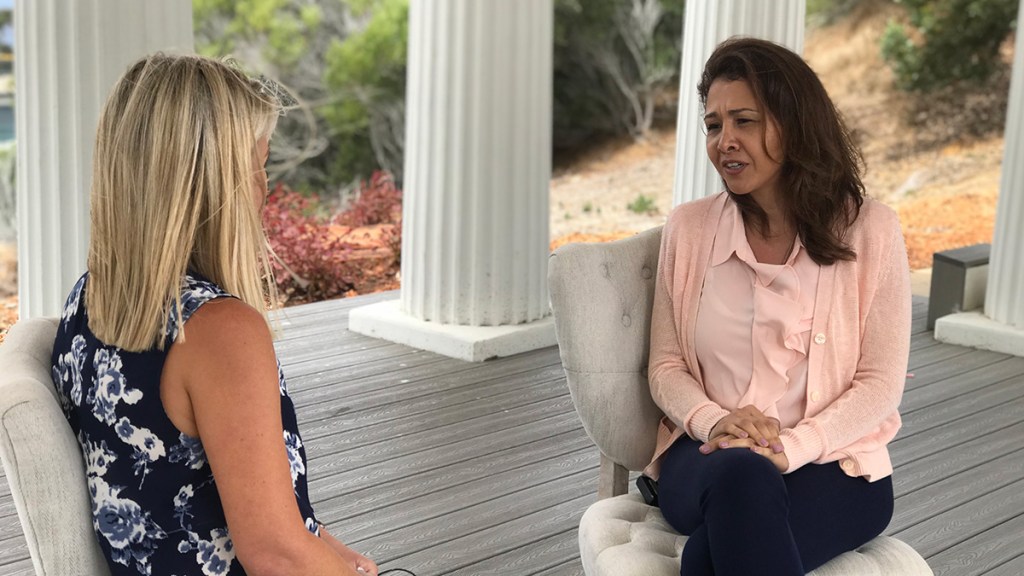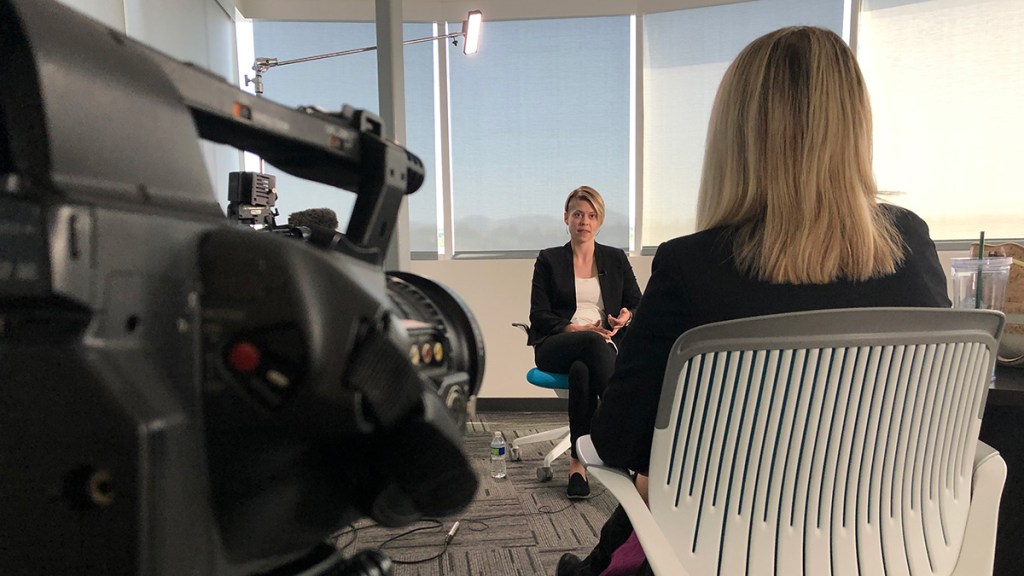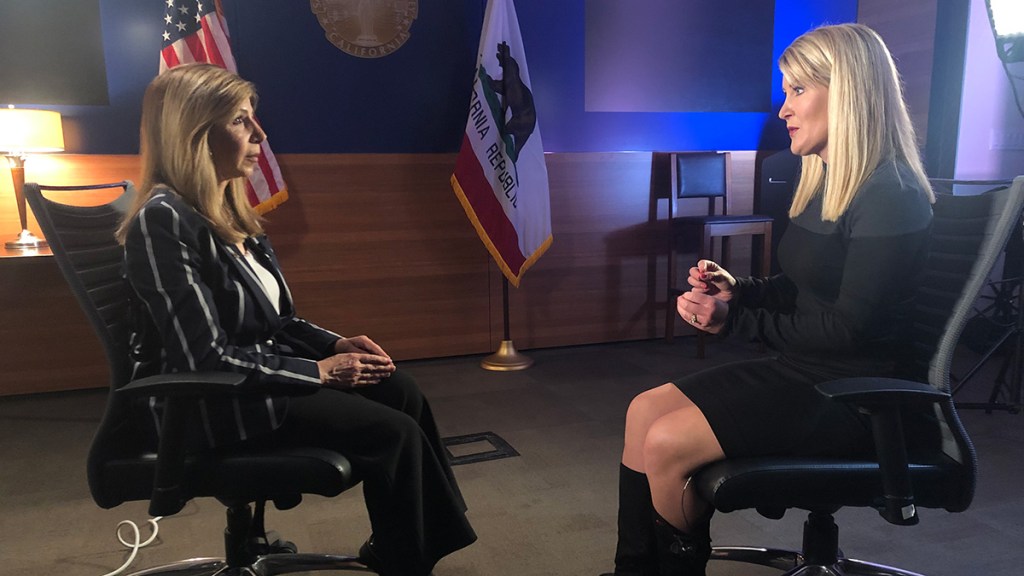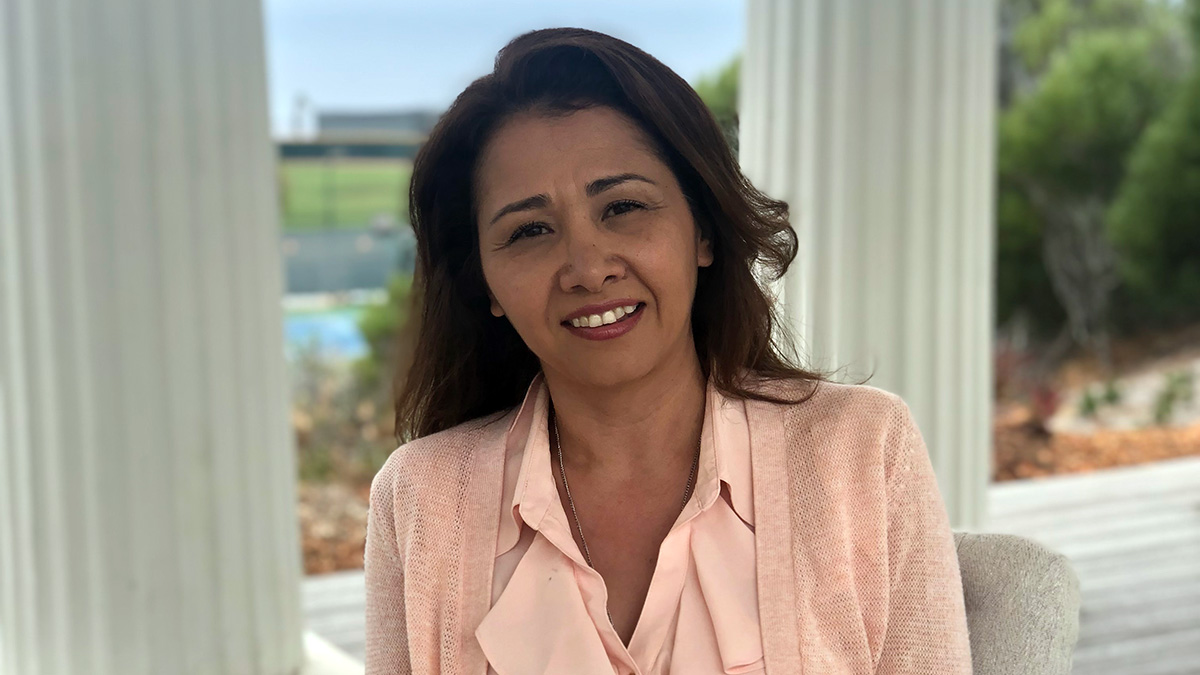“STOLEN” is a year-long NBC 7 investigation into the sex trafficking and exploitation of children in San Diego County. The seven-episode documentary series is told from the perspective of survivors, advocates -- even traffickers, and sex buyers, explaining the depth and scope of this problem in our communities and our schools. And with more children online during the coronavirus pandemic, experts say they are at greater risk of exploitation now more than ever. “STOLEN” celebrates the strength of survivors and their families, as they struggle to free themselves from the bonds of sex trafficking. See the full series here.
THE PROBLEM
Jessica Kim stares at the Pacific Ocean from an outdoor pavilion at Point Loma Nazarene University in San Diego. She smiles as she begins to tell her story. The warm and peaceful expression hides a dark and disturbing past; a childhood of abuse and sexual exploitation at the hands of her step-father.
Now as an advocate for survivors, Kim fights for the millions of children throughout the country and across the globe who have experienced sex trafficking.
“My exploitation started at 12 years old,” says Kim. “He was that father-figure that was supposed to take care of me and it turned out to be something really, really different.”
The man she trusted most turned on her. Her stepfather abused her for years before he began trafficking her to others for sex. The exploitation lasted until Kim turned 18 when she was finally able to escape his clutches.
“He groomed me and he brainwashed me in such a way that I didn't even know it was trafficking.” Kim said. “I didn't know the word trafficking. I didn't know what it meant until way later, when I finally escaped.”
While Kim escaped her exploitation, and went on to help other survivors recover from their trauma, experts in this field say there is not enough attention focused on the growing problem of child sex trafficking and exploitation here in San Diego; a problem that thrives in darkness when communities are unaware its taking place.

WHAT IS SEX TRAFFICKING?
Advocates like Kim say when it comes to sex trafficking, there are many misconceptions about what the problem is, and how it's impacting our youth.
Human sex trafficking -- defined as the commercial exploitation or selling a person for sex often by force, fraud or coercion -- generates an estimated $99 billion worldwide, according to the International Labor Organization. One study found in San Diego, the local sex trafficking economy generates $810 million a year.
In this podcast episode of "Into San Diego," NBC 7's Monica Dean and Tom Jones explain more about the STOLEN series and sit-down with a licensed counselor who specializes in assisting child trafficking victims. She explains what parents should know about this complex issue. Listen to the episode below.
Legislation passed in California in 2017 made it so anyone under 18 who has sex for money is considered to be a victim of sex trafficking.
The problem is not getting any better. The number of cases in the U.S. is on the rise. According to the Polaris Project, the National Human Trafficking Hotline and BeFree Textline received 9,000 reports of sex trafficking in 2017—a 13% increase from the year before.
Data obtained by NBC 7 Investigates shows calls from schools in San Diego County reporting the Commercial Sexual Exploitation of Children increased by more than 700 percent in the last five years.

But behind every one of those numbers is a potential victim.
Kathleen Thomas is a counselor at North County Lifeline, an organization out of Vista that offers counseling to victims of sex trafficking. For more than 10 years, Thomas has worked with sex trafficking survivors, from victims still in their teens, to victims who are now senior citizens.
People don't have an awareness of what sex trafficking really looks like because it hides in plain sight. There is no one thing that isolates you or insulates you from experiencing trafficking... Anyone can experience human trafficking.
Kathleen Thomas, counselor at North County Lifeline
MYTHS AND MISCONCEPTIONS
So what do we know about those trafficked and the traffickers who recruit and exploit them?
In San Diego County, the average age of a sex trafficking victim is 16-years-old, according to San Diego County District Attorney Summer Stephan.
And advocates say young people are especially vulnerable because their brain development is still underway.
“Our brain isn't fully formed or developed until we're 25 years old,” Thomas explained. “So let's say a 30-year-old perpetrator is manipulating a 16-year-old. It's a completely unfair playing field because she doesn't even have the same cognitive structures that he has. She doesn't have the ability to read and understand the situation appropriately because her brain is not functioning properly yet.”
Despite long-held notions that San Diego’s proximity to the border has helped fuel the region’s human trafficking problem, the vast majority of victims are from San Diego County.
A 2016 study from the University of San Diego and Point Loma Nazarene University found that 80 percent of sex trafficking victims in San Diego County live within county lines.
The misconception that the border plays a significant role in the local problem is one that DA Summer Stephan says she constantly hears, and tries to correct.
“Why don't we start telling our kids the truth? The fact that 80 percent of the time, the threat doesn’t come from a stranger who pulls them off the streets,” Stephan said. “The threat is from someone trying to befriend them, or from a friend, a family member, a coach, or a teacher that wants to exploit them.”

Thomas agrees.
“When people hear human trafficking, they think of someone coming over in a shipping container in the middle of the night or a young girl kidnapped off the streets. But here in San Diego, it's our neighbors trafficking our neighbors. It's our middle schoolers trafficking middle schoolers,” she said.
HOW DO PEOPLE FALL PREY?
After years of building up courage to speak to others on the horrors of sex trafficking, Kim still finds herself reluctant to talk about the specifics of her own exploitation.
“Think of the worst experience you have gone through in your life and multiply it by a thousand or a million,” she said. “Think about your daughter, or your sister, or your brother. Think of somebody raping them, somebody that you love deeply, over and over again. And maybe that will bring some light to it. It's hard to fathom.”
The grooming and the brainwashing, coupled with the fact that so often the person doing the exploiting is a family member or family friend makes it hard for young people to escape, explained Kim.
“It's not a ‘stranger danger’ kind of situation,” she said. “It's usually somebody who is close and that has direct access (to the victim).”
Sitting outside on the campus of Point Loma Nazarene University, Kim recalls the years of abuse by her stepfather and how he groomed her for life on the streets.
“It begins with love and attention. They will say, 'Oh, you deserve so much more’ and ‘I'm always here for you.' But how quickly things shift after trust is built,” she said. “This is like a cult. It's kind of the same mindset where they are brainwashing you to think that there is no way out.”
Kathleen Thomas with North County Lifeline says there are many misconceptions about the relationship between the victim and their exploiter. Oftentimes, the victim is brainwashed into thinking the decision to sell themselves was theirs, and the person exploiting them is there to help.
The victim, says Thomas, often believes he or she has made a choice, and Thomas says after that first time happens a victim feels ashamed, which keeps him or her trapped in the abusive situation.
The exploitation may begin with an exploiter asking the victim to do something 'just this one time.'
Kathleen Thomas, counselor at North County Lifeline
Kim’s experience is an example of the complex relationship between victim and the exploiter. She remembers her stepfather convincing her that he was the only one she could trust.
“He made me believe that he was the only option,” she recounted. “I didn't think there was a way out.”
Kim says her step-father preyed on her youth throughout it all, and the two formed an emotional bond during the abuse and his victimization of her. She refers to it as “trauma bonding.”
“It's the bond that takes place between the victim and the perpetrator where there is this love and at the same time hate and you are confused,” Kim said. “You don't want this pain to continue and yet this person is telling you that they love you.”
It’s the love, despite the harshness of the lifestyle, that keeps the person being trafficked so connected with their trafficker, according to Thomas. So often it is also the love that keeps the exploitation hidden and the victim trapped in the cycle of abuse.
There is very much a loss of sense of self because you have no ability to control what's happening around you. It’s a stolen identity. It's a stolen agency. It’s their ability to move forward and make progress.
Kathleen Thomas, counselor at North County Lifeline
JOURNEY TO FREEDOM
The bonds formed between the victim and their trafficker are so strong, it makes leaving so much more difficult.
For Kim, her first attempt to escape from the physical and psychological clutches that her stepfather had on her came after more than a decade of abuse and exploitation.
“I tried and finally did escape the situation but he found me. He brought me back,” recalled Kim. “I knew that I couldn’t do this on my own. I had to reach out to people.”
“It takes a village to help a person get out from something like this. It takes a community of people to come alongside a person who is trapped. So it took a year of planning but I was able to get out,” Kim added.
Kim's trafficker never faced any kind of legal prosecution.
As is the case with so many victims, Kim was unable to process and understand all the intricacies of her exploitation until much later in life. For Kim, that awakening occurred during a community outreach event on sex trafficking.
“I was invited to come out to this conference and as soon as I sat down, I heard the speakers begin to talk about the commercial sexual exploitation of children and what it looks like,” she said. “I came to realize that this was me.”

The realization allowed Kim to shed years of guilt and shame that haunts so many victims of sex trafficking.
“It was a big relief to know, you know, that it was not my choice. This is something that was done to me and I had a great support system to work with me through this process,” Kim said.
Kim has worked to turn her emotionally crippling past into something positive, becoming one of the first recipients of Point Loma Nazerene University’s Beauty for Ashes Scholarship for Human Trafficking Survivors.
She graduated college and in 2020 earned a Master’s degree. Now, her mission is to help others who have found themselves trapped where she once resided-- in the dark and ominous underworld of human sex trafficking. She’s also helping pave a way for survivors to get an education or pursue vocational skills through the OnRamps Collaborative.
If somebody would have told me at 12, 13, 14 years old what was happening to me, my life would have taken a whole different route.
Jessica Kim, Sex Trafficking Survivor
Kim speaks to a number of community groups: teens, survivors, researchers, teachers, clinicians and law enforcement. She is also a teacher with PLNU’s kNOw More curriculum which helps educate groups about sex trafficking in both English and Spanish, and works to help create new educational and vocational opportunities for survivors of human trafficking.
“I know there are so many others that are still in that situation and I want to give them hope.”


